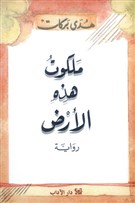Nizar Qabbani (1923-1998) was a Syrian poet, essayist, diplomat, and publisher and one of the most popular poets in the Arab world in the last few decades of the 20th century. He was born and raised in Damascus in a middle-class merchant traditional family. At the age of 15, Qabbani’s sister committed suicide because she was unwilling to marry a man she did not love. It is believed that this tragic event incited Qabbani to write poetry that expresses women’s desire and exposes their social condition. In 1942, Qabbani’s first poetry collection The Brunette Said to Me (Qālat lī al-samrā’) was published in Damascus, marking the beginning of his career as a love poet, and earning him sharp criticism from conservative critics. He graduated from the Law School of the Syrian University in 1945, and started a diplomatic career that enriched his life experience and contributed to the maturation of his poetry. During the years following the 1948 Nakba, Syria witnessed much unrest, and Qabbani turned to composing national poetry in which his bitterness at the Arab defeat is manifest, and the first of which is his famous poem “Bread, Hashish and Moon” (Khubz wa hashīsh wa qamar) which was banned at the time. In 1966, Qabbani resigned from his diplomatic post and moved to Beirut, where he started writing even more angry and critical poetry following the 1967 Arab defeat, publishing "Notes on the Book of the Defeat" (Hawamish `ala Daftar al-Naksa). During his stay in Beirut he establishied his own publishing house and wrote for the Weekly magazine Al Usbu’ al ʻArabi from which this article is excerpted. In 1981, he moved to London where lived until he died from a heart attack at the age of 75 in 1998. According to his request, Qabbani was buried in Damascus, which he described in his will as “the womb that taught me poetry, taught me creativity and granted me the alphabet of Jasmine.”
Qabbani was one of the most popular and bestselling poets in the Arab world. He wrote love poetry and political verse to criticize the rampant corruption of Arab dictators. In the piece below, Qabbani expresses his disappointment with some of the Arab writers, artists, and intellectuals. His essay resonates with the disappointing stances of some Arab intellectuals and littérateurs vis-à-vis the Arab Spring.
Poetry Buses by Nizaq Qabbani
Writing is the art of involvement. There is no real writing outside involvement. Writing is not a Persian rug on which the writer walks, as Jean Cocteau says; nor is it a seat covered in Aubusson, or a pillow of bird feathers into which our heads dive, or a private yacht on the deck of which we bask in the sunshine…and drink icy Dutch beer.
The writer has to remain in his depths a Bedouin dealing with the sun, with salt, and with thirst.
He must stay barefoot in order to feel the heat of the earth, its swellings and the pain of its stones.
He must stay naked like a wild horse, refusing all the saddles the regimes are trying to place on its back.
And once the writer loses his Bedouinness, his wildness, and his ability to neigh; once he opens his mouth for the iron bridle and grants his back to riders, he is transformed into “a government bus” forced to stop at all bus stops, and submit to the conductor’s whistle!
“Poetry’s buses” are well known in the history of ancient Arabic poetry, and the “garages” of caliphs are crowded with thousands of hypocritical poems which have, with the passage of time, become skeletons of tin plate and piles of scrap metal.
However, what surprises us is that this phenomenon persists in modern Arabic poetry, where we notice that some of our poets as well have been turning into “buses,” turning left and right to the capitals of the Arab world, carrying in their trunks acting costumes, make-up, and poems whose titles change according to “the requirement of the situation”!
The poet cannot choose ice and fire together; he cannot be in the forest and the city simultaneously; and he cannot be in survival and death at the same time!
Writing is a daily game with death. Thus Hemingway understood literature, and thus Kafka, Lorca, Camus, and Mayakovski, and others who have lived their lives and writings in the isthmus between life and death.
As for us, writing is “a government function” having all the comfort, obedience, fatalism, and discipline of an office position…
Three fourths of Arab writers are “civil servants” who write while holding in their pockets an insurance policy against poverty, illness, old age, and arbitrary expulsion…
For this reason they are unable to declare any strike, or walk in any demonstration, or distribute any poem or secret pamphlet not approved by the employer!
Thus the Arab writer is torn between his “civil position” as a man married to the government and his “artistic position” as a man yearning to cheat on his wife “the government,” but cannot carry out for the sake of the children’s future and the family honor!
Until we find the great courageous Arab writer who can tear out his certificate of marriage with the authority, and commit adultery even once, literature books will remain for us far from interdiction and confiscation, exactly like housekeeping books!
2/07/1973
![[Nizar Qabbani. Image from Unknown Archive]](https://kms.jadaliyya.com/Images/357x383xo/Nizar.jpg)





